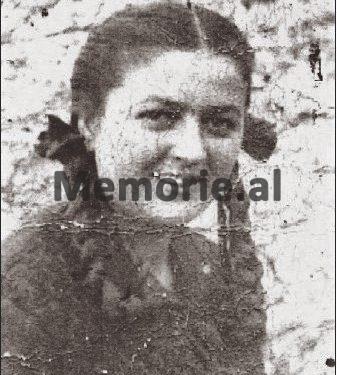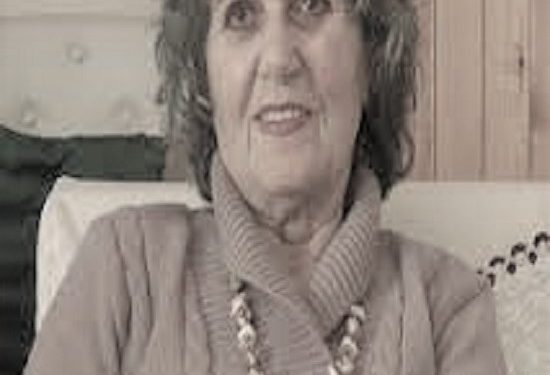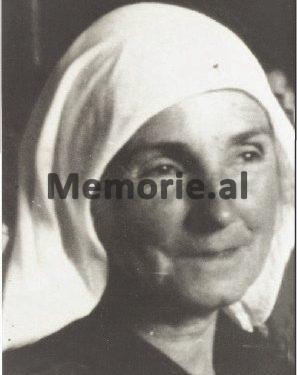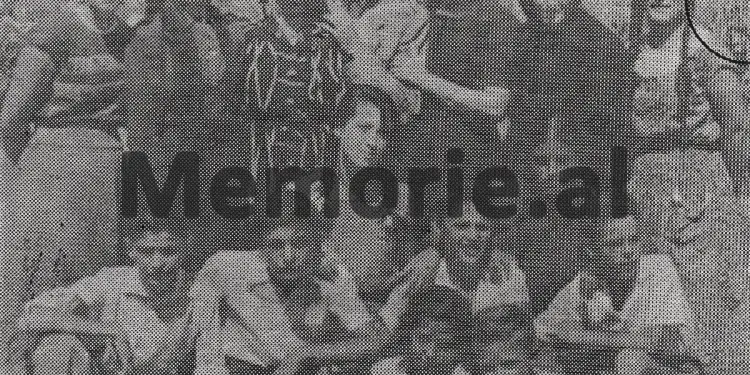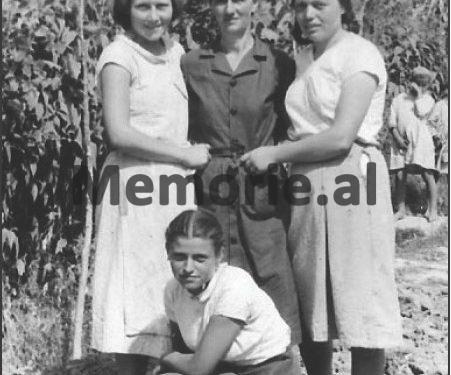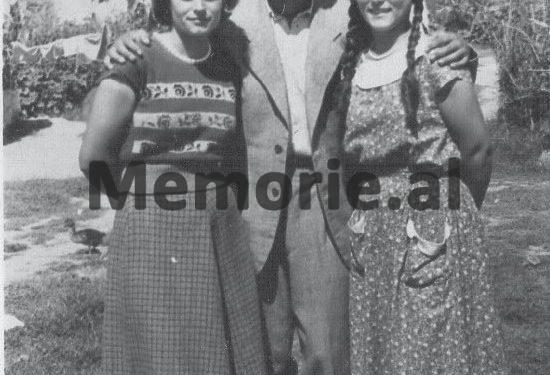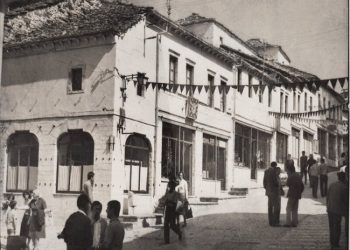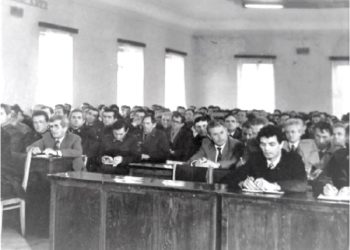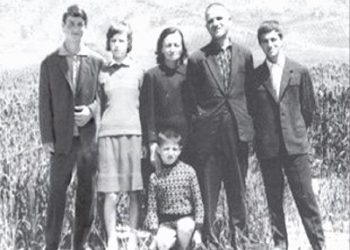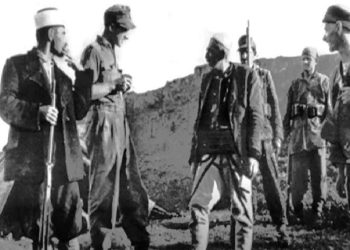Fatbardha Mulleti (Saraçi)
Part eighteen
Memorie.al publishes some parts from the book ‘Calvary of women in communist prisons’, by Fatbardha Mulleti Saraçi, (granddaughter of the famous former mayor of Tirana, Qazim Mulleti), whose family from 1944 until in 1991, he was persecuted by the communist regime of Enver Hoxha, where Fatbardha’s father, Haki Mulleti, a former senior state administration official since the 1920s, was imprisoned and interned by his family, until died in the hospital of Tirana, poisoned by the State Security. In her book ‘The Calvary of Women in Communist Prisons’, which is the fruit of several years of work, the author has masterfully described the unknown stories of some of the Albanian women and girls who suffered in prisons and internments in the dictatorial regime of Enver Hoxha, started by her mother, Pertefe Mulleti, and many others.
In addition to the above, the author Fatbardha Mulleti Saraçi, in her book, has described some of the tragic stories of some well-known families, mainly from Northern Albania (but also from Central and Southern Albania) such as; Gjonmarkaj of Orosh of Mirdita, Dine, Dema, Kaloshi, Ndreu, of Dibra, Pervizët from Skuraj of Kurbin, Miraka of Puka, Kola of Mat, Bushati, Pipa, Dërguti, Serreqi, Naraçi, Saraçi, Marashi, Gurakuqi, Çoba, Malaj , Vata, Deda, Vuksani, Kaçaj, Luli, Sokoli, Mushani, etc., of Shkodra and Malsisë e Madhe, Kupi, Merlika, of Kruja, Kërçiku, Mulleti of Tirana, Staravecka of Skrapar, etc., which were persecuted and were massacred in the most barbaric way by the communist regime of Enver Hoxha, parts of which will be published in the continuation of this cycle of articles by Memorie.al.
Continued from the previous issue
Beta
Elizabeth John Mark (Meshkalla), says: – The brother who left, Zefi, was 18 years old, left his homeland for the Western world. We were interned as a family, mother Marie, father John, brother Luigj, I, were sent to the Porto-Palermo camp. We tried all the internment camps, from Berat, they sent us to Tepelena. There we were treated inhumanely; we transported wood from the mountain, stones, etc. I remember an event: In the Tepelena camp, Abedin Mulosmani’s brother, who was young, was interned. After he was released and was waiting to be picked up, a mine exploded (there were many in the camp and it was not known which ones were dangerous, the demining had not taken place). The baby’s body was torn to pieces. Likewise an old woman who was cooking, was fasting, but failed to eat food, was shattered by the explosion of mines.
In addition to the extreme cold, miserable living conditions, lack of heat, food, there was also the fear of landmines exploding. Beta tells: – We were in Savër, I composed the words and music of a song, which I sang with my exiled friends. The song was directed to Shkodra, which I had no right to go and ended with the verses:
“Gather friends sometimes sing /
Do not be full of worry /
I endure and you endure /
“As the flange in the cage endures.”
For this song that we sang there in Savër, we were called to the Security office in the city of Lushnja, all the girls. The lieutenant held us accountable for the words and music of the song. He questioned us all. We were not allowed to sing the song of longing anymore.
Beta ends the story: “We did not have the right to sing a song either.”
Lutfije Omari
Born in Shkodra, daughter of Esma and Bajram Kapisyz. The wife of Mr. Shaqir Omari, who as a family gave evidence of patriotism in the trenches of Tarabosh in 1912-‘13, in those of Koplik in 1920-1921, for the defense of Shkodra. For his anti-communist activity, he was sentenced to death by partisan courts.
From 1945 to 1947 he remained on the run. He took refuge with his friends in the Great Highlands. By 1945, mother Luti and her family would be among the first victims of the class war, persecution haunting her to the end of her life. They were evicted and their property confiscated. They let them live in a place that was not suitable for living.
Mrs. Lutfijen was arrested and taken to prison (at the Church of the Nuns), where she was kept for 24 hours in the toilet with her 4-year-old daughter, Satber. They kept her in jail for a year, while the 4-year-old girl was released, in the middle of four streets. She took refuge with her relatives. In prison, mother Luti would get sick, be sent to the hospital, and be operated on by Dr. F. Shiroka. The major surgeon wanted to keep him in the hospital.
Prison officials asked him to bring the prisoner to prison, while the humanitarian doctor said he had not recovered. As soon as she heard about a surprise check by the prison administration on the patient, she herself asked the surgeon to open the wound, to save the doctor from the consequences. She endured as a brave the urgent wound rupture, without anesthesia. With the fall of her husband in prison, mother Luti returned to Shkodra. The house was rented while she was allowed to live, in a small room. All the time it was controlled by Security people, there was no civil rights, no front triska. Worked hard to secure the bread of the mouth. She had to keep her husband in prison, as in: Shkodra prison, in labor camps, in the Maliqi swamp, in Beden, in Burrel 6 (six) years. The heroine Luti followed him, in all the labor camps and in Burrel prison, loaded with bags of food and together with them, she gave him love and hope that one day good will come !!
She experienced the death of two beloved daughters, who left her a bunch of orphans, whom she raised with much love. He faced life. One day, after ten years, the political prisoner came out of prison. Life went on with the class struggle, until she closed her eyes in 1989. She lived to the end of her life, with her daughter Satber, who gave her loving mother, much love.
Miraka family
From 1945, four young brides with seven children were exiled with their families, the youngest one week old, while the grandmother, Kola’s mother, died in exile in the Tepelena camp, a week after her nephew was killed by the pursuit forces. He was reburied three times, finally his bones were put in a box, and he remained buried.
Kune Mirakaj was interned as a mother; it had been a week since Simon was born…! “We were in Tepelena, in the barracks with many other accomplices; I had two little boys, Sokol and Simon, with a good cough. They were very sick, they were bleeding “- told the stories of her life, mother Kune. “We needed some warm water for the children; they did not allow us to light a fire in the shed. I took a pine tree, went to the door of the shed, the wind was blowing but I turned it on and started to heat the pool with water, while the guard was doing the control lap, he saw me and found me the moment I was heating the water, but he kicked me ridge, and I fell upside down, my eyes sparkled.
I gave myself strength, I got up, I continued to light the pine tree again, as soon as the policeman was doing the other way of control, I restarted the pine tree and heated the water with the little pot, to give to the children… With as many sacrifices and efforts I could raise them, to save them from death, in that extermination camp, in which two hundred children and infants died at that time, not counting the elderly. ”
Kune’s mother raised Sokol, Simon and Lajden in exile, she herself died in exile in Gjaz, Lushnja. Cube’s mother raised Zefi, Katrina and Clara in exile, and this mother also died in exile in Gradihtëte. Children grew up in exile, there they formed families and gave birth to their children, but in exile, the wind of freedom found children in their youth. A young bride entered this family and Vali, who was interned at the age of 16, was only the daughter of the honorable Mr. Mentor Çoku, a political emigrant.
Dinej Family (Nasufi)
Many Albanian families experienced suffering in internment camps, one of them being remembered by the Dine family. The people of Dibra have fought and suffered. History says and proves it, but only the Dinej of Maqellara has paid dearly for it. As the men fought in the mountains, the Dine family, women and children, were exiled. The Dinej tribe paid its own anti-Slavism very heavily. During the battle on the battlefield, insidious Serbs came and captured women with children and interned them in Bitola. It is the first family to “inaugurate” the institution of internment.
In 1920, when the agreement for the return of the captives was being made, the Albanian Government set as the first condition to return to Dibra from Bitola, the Dinej family, with the exiled women and children. For dissent and opposition to the occupation of Albania by Italy, the fascists burned down their house, while women and children fled and settled around the village of Obokë, in the district of Dibër. Even in the time of communism, again the women and children of this family were the first to try the exile, it had become customary for this family to inaugurate, to cut the ribbon of every camp that opened, but this time the exile was endless. But why were they interned?
One of the drinkers of this family, Fiqiri Dine (born 1908) studied at the Military Academy in Austria (Vienna). In 1925, he became the first captain, he participated in the government of Albania, but with the arrival of the communists in power, he was followed by them; in 1946 he finally left the homeland, together with his brother, Major Dilaver Dinen, while Xhelal Fiqiri Dine, managed to escape from exile, cross the state border, while Esat Dine was killed by the Security forces. It was 1949. While Fiqiri Dine was being tortured spiritually for the homeland outside his borders, his family and relatives were shot, imprisoned and interned, a measure which was not taken away from him until 1991-‘92.
Their transfers were not complete, from the Brick factory in Tirana, to the city of Berat. In this city, the little toads, Tomori and Sazani, made up a ball and played it all day, while the youngest intern was Dine Esat Dine, a one-year-old who would be orphaned because his father was killed by the State Security. in an attempt to cross the state border (in 1949). They were then exiled to Porto Palermo, to the ancient Roman castle, which was all damp dungeons and caves, the sea water crashing hard against the ancient walls. Then they were sent to Tepelena, to drop wood in the frost, snow and ice, barefoot, crossing the Bënçë River, with a heavy burden on their backs. The children of this family came small, in shorts, retired, bent over, only in 1991-‘92.
Fiqiri Dines’s wife, the honorable Rukije, raised the children in internment camps, felt sorry for them, was experiencing poverty, hunger, cold, living in silos, the fierce class struggle, and saw that her daughter, Hana, was growing up and sons, Tomori and Suzani. But mother Rukija, would experience the great pain of losing her son, Skënder, who, on false charges, was imprisoned at a young age, and sentenced to many years in prison, in Gjirokastra prison and labor camps. While working in the Vlashuk camp, work was being done to open the tunnel, but the ground was soft and did not stand, then they had to cut the hill in the middle, to open the tunnel, then the cover would be done. While working in the canal they had difficulties, a part of the land, even though they were hit with a pickaxe was not given, they worked all day on it, they tried to knock it down, it was 2 m. cubic and working workers; then, when the earth was not thought of, it collapsed, several cubic meters fell and all this mass fell on the young and good Skënder. When they pulled him out, the boy had his spine broken, his vertebrae torn.
It was 1953; it was the eve of the twenty springs. They did not give him any medical help, they put him in a hut, in solitude, his pains and groans were endless, until the young man gave up the ghost, closed his eyes forever. Remained buried, mother Rukija had no right to see her son, for the last time, her heart was suffering spiritually, she did not see her husband and son Xhelal, who were abroad, young children were growing up in internment camps . He died in exile in Gjaz.
She remained the example of the faithful, wise, calm woman, who bestowed only love, her kindness, was infinite. She closed her eyes for life, calm that her children grew up and became wonderful even though they always remained contingent of manual labor, they were tireless, honest, incorruptible, unbreakable workers, in front of insurance, they proved strong, so exiled formed families, continued the eternity of their precious tribe, the Dinej who remained an example in love for the Homeland. They remained an example of heroism by challenging communism, with their unparalleled resilience, managed to survive, preserving the moral values of the Albanians, human dignity, withstood the floods that came from their own compatriots, Survived.
Fuat Dine, Fiqiriu’s brother, who grew old in the internment camps and his wife Meleqe, also died in exile. He died in Gjaz, Lushnja. They had no children, but a lot of love was given to their grandchildren. Suzani, Tomori and Hana grew up in exile, where they formed families. Suzani married Veronika (daughter of Hasan Dosti), Tomori married Shkurten e Dibra, while Hana married Genc (son of Muharrem Bajraktar). Children were born and raised in exile. D.m.th three generations was exiled: First generation – mothers and uncles. The second generation – children who grew up in exile like Suzani, Tomorri, Hana, Fatmira, Dineja.
The third generation – are those who were born and raised, but internment camps i.e. we’re not equal to other citizens of the homeland, as long as they did not have the freedom to move, let alone others !! The Dine family suffered great persecution. Hasan Dine, an officer, was shot by the communists, without trial, on November 17, 1944. Fadil Izet Dine (Nasufi), a finance officer, was arrested on false charges and sentenced to be shot. Another nephew, Lati, was arrested and sentenced to 15 years in prison. Memorie.al




